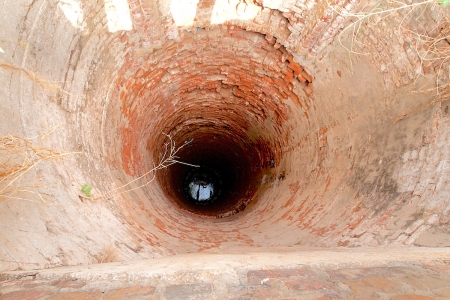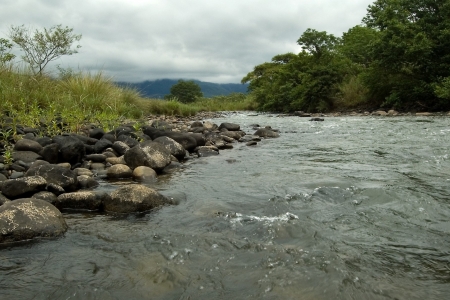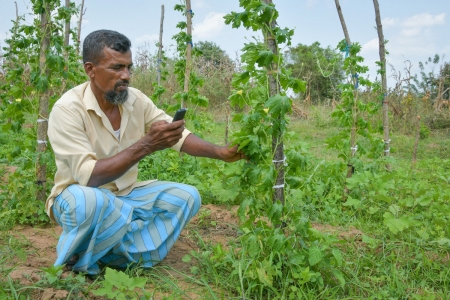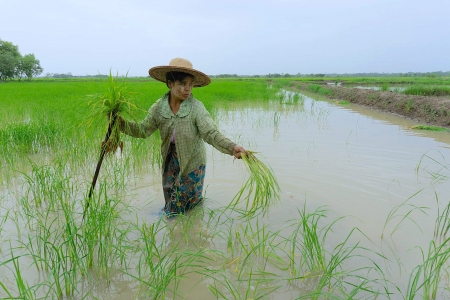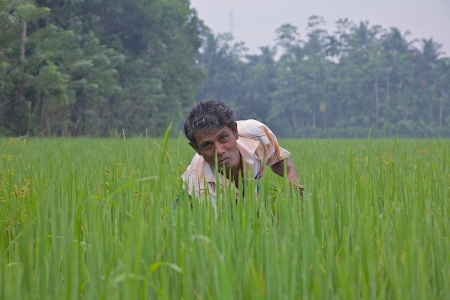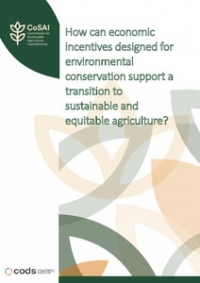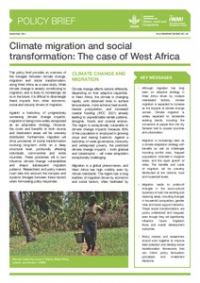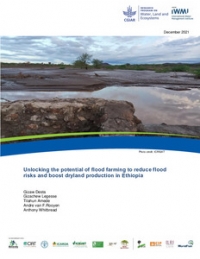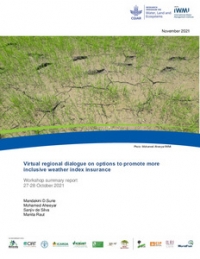What is it about agriculture that the world finds so hard? We eat its products every day, after all. Yet when it comes to adopting sensible policies for ensuring that people get fed, that farmers can make a living, and that agriculture does not contribute unnecessarily to climate change, the world's diplomats are frankly clueless.
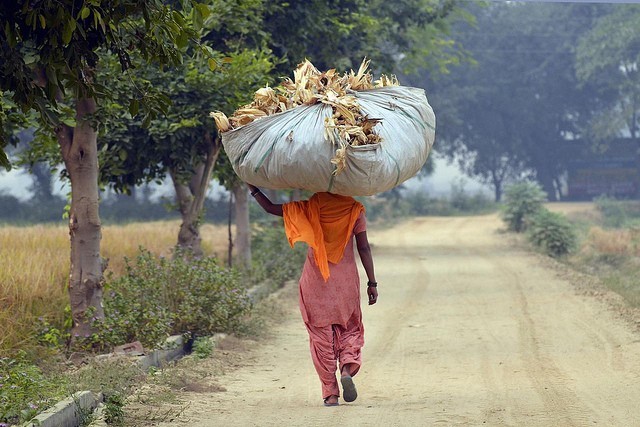 Negotiators walk away from agriculture at COP19. Photo: Neil Palmer
Negotiators walk away from agriculture at COP19. Photo: Neil PalmerWe have seen that here in Warsaw. Climate diplomats half way through two weeks of deliberations aimed at delivering a new global treaty to tackle climate change, have reportedly simply walked away from the farming challenge.
Agriculture matters big time for climate -- and climate for agriculture. It contributes up to 25 per cent of global carbon dioxide emissions, through deforestation to make way for farms, manufacturer of agrochemicals, emissions from soils and so on. Meanwhile, farmers are in the front line from the impacts of climate change. And there is huge potential to do things better, for both mitigating climate change and adapting to it. Often the two go together, creating classic win:wins.
But this week specialist negotiators charged with working up proposals on the issue flunked it.
The failure came not from the main political negotiations, but from the parallel technical talks held under the Subsidiary Body for Scientific and Technological Advice (SBSTA). As Elizabeth Nsimadala for the World Famers' Organisation said late on Saturday, "parties were not able to agree to engage in further substantive discussions on agriculture under SBSTA here at COP19, which is effectively delaying any further progress on this important issue for another year."
Some reports say that developing countries like India and China shut down the discussion because they feared efforts by the EU and others to target them to reduce their agricultural emissions. If so, that appears very short-sighted. Not least because other developing nations, like Brazil and Indonesia, are hard at work developing land-use strategies to reduce their emissions.
“The negotiators fail to deal with the fact that agriculture can be both an adaptation and mitigation strategy for climate change,” says Bruce Campbell, Director of the CGIAR Research Program on Climate Change and Food Security (CCAFS).
Outsiders will be even more perplexed than insiders steeped in the jargon of climate talks. So let me explain. This is not a failure to reach a deal on agricultural emissions. It is not even a failure to begin political talks about such a deal. It is a failure to hold scientific talks about what they might discuss at the political talks.
It wasn't meant to be like this. Back in June, SBSTA asked countries to submit ideas on dealing with agriculture in the climate negotiations. Yet for reasons that remain to be explained, those initiatives have been stonewalled. If even the techie negotiators won't engage, what hope is there?
Agriculture should be a central issue for climate negotiators. Food security, how agriculture can help mitigate climate change, and how it might adapt to it, are all key. Hundreds of non-negotiating delegates came here for a two-day Global Landscapes Forum in this, the middle weekend, of the talks. They came specifically to discuss, as they put it, how to "shape the climate and development agenda for forests and agriculture."
They are the world's experts on the matter. But sadly they are not the SBSTA negotiators. As news seeps through, they are growing angry at what is happening -- or failing to happen -- across town.
As they point out, it is hardly for want of ideas. CCAFS has been here promoting ways to do "climate-smart" agriculture, highlighted in a series of success stories. Earlier this month, the UN Environment Programme reported on its own assessment of how agriculture could contribute to mitigating climate change.
Nor is it for want of time. Back in 1997 at the talks in Japan that produced the Kyoto Protocol, a number of things were left unresolved. There were three in particular: international aircraft and shipping emissions, forests, and land use and agriculture. Only in the final hours in Kyoto did the delegates there finally recognise that they were beyond resolution before they went home.
Since then, the world has made good progress on forests and even, as of a few weeks ago, on aircraft emissions. Agreements on both are likely to be ready to be bound into the new global treaty if it is agreed in Paris in 2015.
But agriculture? Few could have realised back in Kyoto, that one of their key unresolved topics would still be in limbo 16 years later. Not so much mired in controversy as greeted with a shrug of the shoulders.
One billion farmers deserve better. The planet deserves better.



